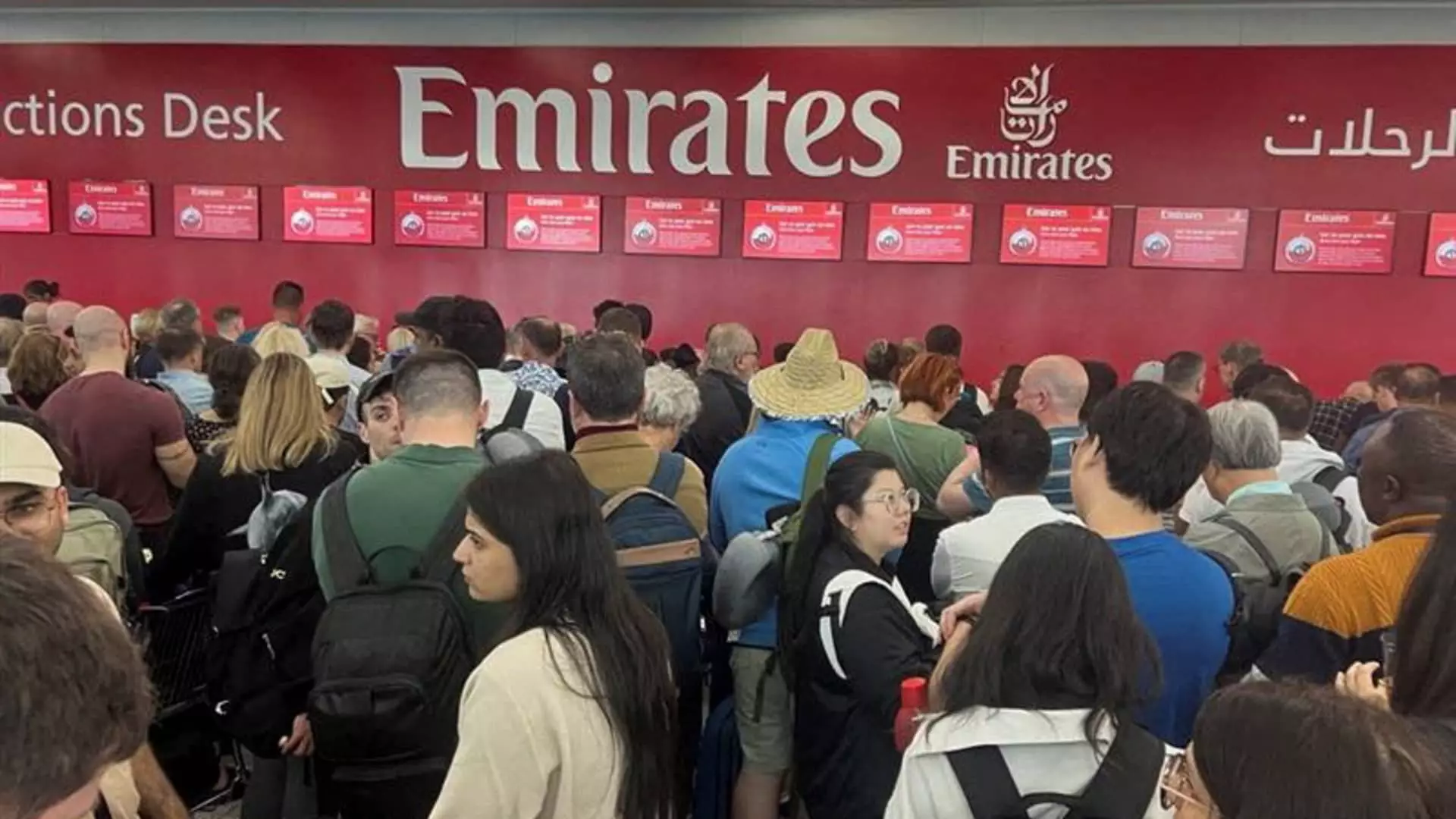Emirates airline recently faced a major crisis due to historic rains in the United Arab Emirates which caused record flooding and chaos at Dubai’s airport. As a result, hundreds of flights were grounded and thousands of customers were left stranded. In response to this situation, the CEO of Emirates, Tim Clark, issued an apology letter to customers acknowledging the disruptions and inconveniences caused.
Customers expressed their frustrations on social media platforms, highlighting the lack of information, long wait times, and confusion in the terminals. Some passengers reported being stuck at the airport for over 20 hours, while others had to book their own return flights after receiving no help from Emirates. The delays and cancellations caused chaos and left many customers feeling neglected by the airline.
In his apology letter, Tim Clark admitted that the airline’s response to the situation was far from perfect. He mentioned that due to flooded roads, customers, pilots, cabin crew, and airport employees faced difficulties in reaching the airport, which also impacted the movement of essential supplies. Emirates had to divert flights, cancel nearly 400 flights, and delay many more, resulting in further inconvenience to passengers.
Despite the challenges faced, Emirates took steps to rectify the situation. The airline issued a notice urging travelers not to come to the airport unless in emergency situations. It also provided over 12,000 hotel rooms and 250,000 meal vouchers to stranded customers in Dubai. Additionally, Emirates deployed over 100 employee volunteers to assist disrupted customers at the airport, prioritizing medical cases, the elderly, and vulnerable travelers.
The incident at Dubai’s airport serves as a lesson for Emirates and highlights the importance of effective crisis management. It is crucial for airlines to have robust contingency plans in place to handle unexpected situations and minimize disruptions to customers. Clear communication, timely assistance, and efficient problem-solving are vital in such scenarios to maintain customer satisfaction and trust.
Emirates’ response to the unprecedented weather conditions and subsequent flight disruptions was met with criticism from customers. The apology letter from the CEO acknowledged the shortcomings in customer service and outlined the steps taken to address the situation. Moving forward, it is essential for Emirates to learn from this experience and implement measures to improve customer communication, assistance, and overall service quality in times of crisis.

